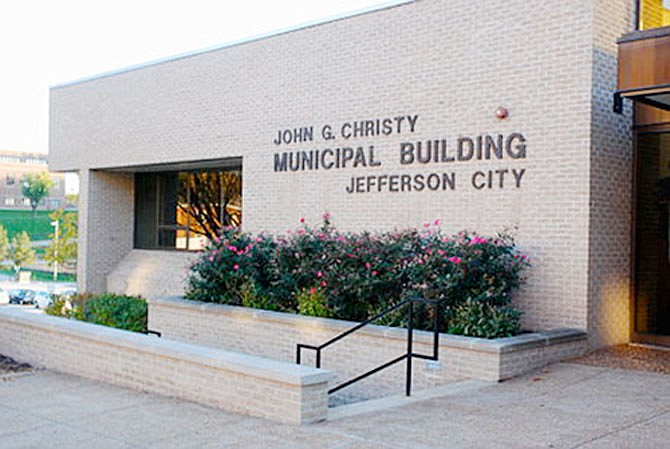The Jefferson City Council postponed voting on zoning code amendments to regulate certain types of medical marijuana facilities Monday evening.
Since many council members were absent Monday, present council members voted to place the proposed bill on the informal calendar. Council members will revisit the proposed amendments on June 3.
"This is a very important topic and I know we are missing some of the important council members, so I would like to put this on the informal calendar until we have more of the council members to have a discussion about this," Ward 4 Councilman Carlos Graham said.
Ward 1 Councilmen Rick Prather and David Kemna, Ward 3 Councilwoman Erin Wiseman and Ward 4 Councilman Ron Fitzwater were absent Monday.
The Missouri Constitution splits medical marijuana facilities into four categories:
Medical marijuana cultivation facility - a facility that farms, stores, transports and sells medical marijuana.
Medical marijuana testing facility - a facility that acquires, tests, certifies and transports medical marijuana.
Medical marijuana-infused products manufacturing facility - a facility that specializes in marijuana-infused products.
Medical marijuana dispensary facility - a medical marijuana retail establishment.
The amendment would apply only to medical marijuana cultivation and testing facilities, along with medical marijuana-infused products manufacturing facilities.
These three facilities would not be allowed within 1,000 feet of then-existing elementary and secondary schools, childcare centers or churches. The 1,000-foot separation aligns with the Missouri Department of Health and Senior Services' recommendation, City Planning Manager Eric Barron said previously.
Medical marijuana cultivation and testing facilities, along with medical marijuana-infused products manufacturing facilities, would only be permitted in M-1 Light Industrial and M-2 General Industrial zoning districts.
Medical marijuana facilities licensed by DHSS would also comply with state requirements, regulations and procedures for implementation and enforcement, the amendment states.
The Jefferson City Planning and Zoning Commission recommended approval of the code amendment last month.
City staff hopes to propose a different ordinance regarding medical marijuana dispensaries in June.
In November, Missouri voters voted to legalize medical marijuana.
DHSS has received 510 pre-filed applications - totally more than $3.67 million - as of May 14, according to its website.
Applications and instructions will be available starting June 4, and DHSS will accept applications for identification cards starting July 4. DHSS will begin accepting facility applications Aug. 3.
The cultivation facility application fee is $10,000. The dispensary facility and medical marijuana-infused manufacturing facility application fees are $6,000.
In other business Monday, the council also voted to postpone voting whether to designate 204 E. High St. as a local historic landmark due to several council members being absent.
Jay and Debbie Seaver, who own 204 E. High St., applied for the designation. Previously known as the historic Exchange Bank, Barvino currently resides there.
The council postponed designating 204 E. High St. earlier this month due to unknowns surrounding 200 E. High St., owned by Neidert Properties, and 202 E. High St., owned by Carol and Ruben Wieberg.
The west wall of 200 E. High St. partially collapsed last summer. The city ruled both buildings, which share a wall, as dangerous structures.
With barriers surrounding the wall, city staff reassured council members that they were doing everything they could to protect the public.
The council also received an overview regarding the progress of the lawsuits between the property owners of 200 and 202 E. High St., as well as the lawsuit between the property owners of 202 E. High St. and the city.
There will be a hearing regarding the lawsuit between the city and the Wiebergs on June 3. City Counselor Ryan Moehlman said he hopes Cole County Judge Pat Joyce will make a ruling in both lawsuits in early June.
Ward 2 Councilman Rick Mihalevich said the city needs to be prepared for the "best case scenario and the worst case scenario" once litigation clears up.
"The city is not the one holding up the process but in the future stage, we ought to be able to move forward when we can move forward," Mihalevich said.
The city also should consider including funds within the budget to cover potential liabilities associated with the crumbling buildings.
"I just sense that we have a chance to be exposed if we don't plan accordingly," Mihalevich said.
If the city does abate the nuisances, a tax lien would be placed on the properties.
If the properties are demolished, Jefferson City Building Official Larry Burkhard said, he was not sure what would go in that space since it would still be private property.

